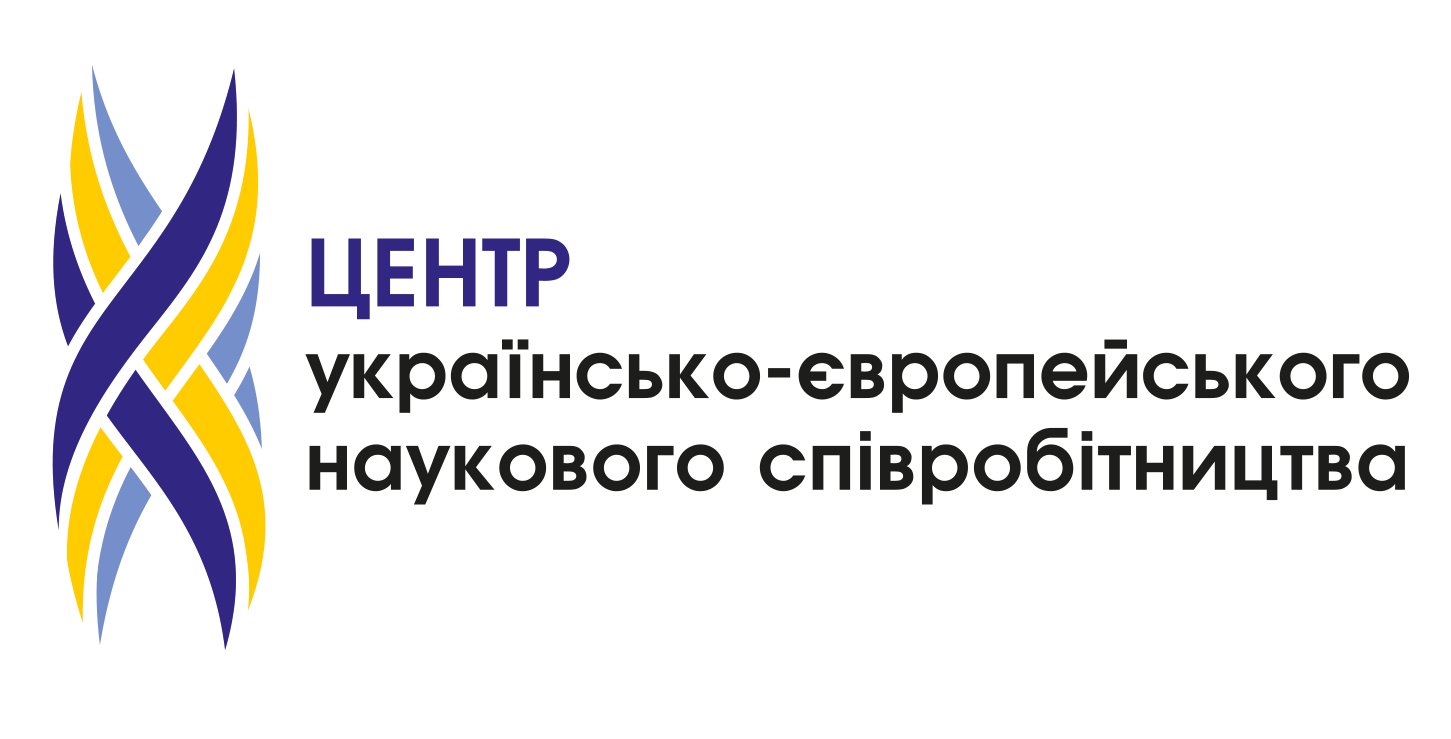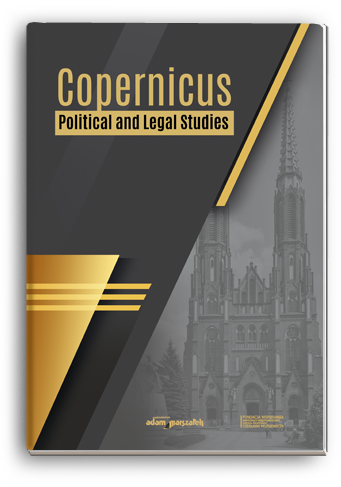Dear authors!
We kindly invite you to publish your articles
in the foreign scientific journal
«Copernicus Political and Legal Studies»
The journal «Copernicus Political and Legal Studies» was founded as an interdisciplinary scientific journal. The journal is produced by the most renowned Polish Publishing Group «Wydawnictwo Adam Marszałek».
The journal is oriented both on prominent scientists and those who embark upon scientific activities.
Exclusively English scientific articles of Doctors and Candidates of Sciences, young scientists (postgraduate students, external doctorate students) as well as practitioners in the field of social and legal sciences are accepted for publication.
 An electronic version of the journal will be available on the official web-site of the Polish Publishing Group «Wydawnictwo Adam Marszałek» at the link.
An electronic version of the journal will be available on the official web-site of the Polish Publishing Group «Wydawnictwo Adam Marszałek» at the link.
To publish the article in the journal «Copernicus Political and Legal Studies» Vol. 2 Issue 4 / 2023, you should to send the following materials to copernicus@cuesc.org.ua before November 30, 2023:
- the article meeting the requirements specified by the editorial staff. Authors whose articles don’t comply with the requirements are rejected to be published;
- to indicate information about the author at the link.
* The author receives payment details after a successful peer-review. The author is informed about the peer-review results during 3-4 days from the date of materials receipt.
PEER-REVIEW PROCESS:
When the author submits the article to the journal «Copernicus Political and Legal Studies», it is subjected to the internal anonymous peer-review. One of the editorial board members, who is a renowned expert in the relevant field, carries out the peer-review. Impartial peer-reviewers thoroughly evaluate the article’s quality, including with the use of individual criteria. The peer-reviewers check the manuscripts for substantiation of the research methodology and procedures. If a peer-reviewer has some comments on the article, it can be sent back to the author for improving.
ACADEMIC INTEGRITY:
The Editorial Board guarantees high-quality anonymous peer-review of articles and their check for plagiarism using StrikePlagiarism.com by the Polish company Plagiat.pl.
PUBLICATION FEE:
Publication fee in the journal «Copernicus Political and Legal Studies» is 600 UAH.
If desired, an author can order a printed copy of the journal. The cost of a printed copy is UAH 800, which is paid in addition to the publication fee.
GENERAL REQUIREMENTS FOR A SCIENTIFIC ARTICLE:
– author can’t edit the manuscript once it is submitted, thus we encourage you to send the final version of the paper;
– the editorial staff does not return the submitted materials and reserves the right to make formal changes and add the necessary abbreviations;
– the article should present the author’s considerations regarding a particular topic;
– the article should include ideas which are characterized by a high level of generalization and scientific novelty;
– papers: 20.000–40.000 characters with spaces (also including abstracts, references, bibliography, tables, diagrams, and footnotes);
– citation: bibliographic – APA style (in-text).
PROHIBITION TO REFER TO THE AGGRESSOR STATE’S SCHOLARLY PAPERS:
It is prohibited citing and including in the reference list russian-language contributions published in any country, incl. papers written in other languages but published in russia and belarus.
TECHNICAL REQUIREMENTS:
File format: *.doc; *.docx. Papers: 20.000–40.000 characters with spaces.
Fields – 2 cm (bottom) x 2 cm (top), 3 cm (left) x 1,5 cm (right); indention – 1,25 cm; line spacing – 1,5 cm; font – Times New Roman; size – 14.
If the article has tables and (or) graphics, they should be compact, entitled: Times New Roman, 12 ps. The size of the tables and graphics shouldn’t exceed a page width.
SEQUENCE OF PLACEMENT OF STRUCTURAL ELEMENTS:
At the front of the article, you should indicate:
title;
surname, name, patronymic of author (-s) of the article (no more than two persons);
job position, place of employment/study, academic degree, rank (if any), e-mail;
ORCID ID. If an author is not logged in ORCID, it is necessary to create an account at the link http://orcid.org/;
summary and key words.
Summary volume: minimum 300 words, maximum 350 words. After the summary it is necessary to add 5-10 key words or phrases, none of which duplicates the title of the article.
Text of the article:
Introduction is an obligatory part of the research, where the author indicates topicality of the subject and actuality of scientific decisions. Goal of research should be clearly indicated along with the research tasks. It is necessary to specify the methodology of research, the logic of presentation of the investigated material.
The main text should be divided into content-rich sections with separate headings (up to 4–6 words).
The article should contain conclusions from the study, which present detailed findings from the study and the prospects for further research in this direction.
References. The references should be placed at the end of the paper in alphabetic order. It is composed according to standards APA (APA Style Reference Citations). There is an author (transliteration), title of the article (in square brackets, English translation), source name (transliteration), source data (city with the English mark), publishing house (transliteration). For example:
Bondarenko, I. (2002). Sudova systema Ukrainy ta yii reformuvannia v suchasnykh umovakh [Judicial system of Ukraine and its reforming in the modern conditions]. Pravo Ukrainy, no. 8, pp. 37–39.
Dikhtiievskyi, P. V., Lahniuk, O. M. (2015). Kadrove zabezpechennia sudiv zahalnoi yurysdyktsii: administratyvno-pravovyi aspekt [Staff assistance of of courts of general jurisdiction: administrative and legal aspect]. Kherson: Helevetyka. [in Ukrainian]
Transliteration of names and surnames is carried out in accordance with the requirements of the Resolution of the Cabinet of Ministers of Ukraine “On Normalization of Transliteration of the Ukrainian Alphabet by Means of the Latin Alphabet” dated January 27, 2010, No. 55.
EXAMPLE OF ARTICLE DESIGN:
CORRELATION OF NORMATIVE RESOLUTIONS
WITH NORMATIVE LEGAL ACTS
Joanna Marszałek-Kawa,
Faculty of Political Science and International Studies,
Nicolaus Copernicus University in Toruń
https://orcid.org/XXXX-XXXX-XXXX-XXXX
kawad@box43.pl
Summary
Summary volume: minimum 300 words, maximum 350 words.
Key words
After the summary it is necessary to add 5-10 key words or phrases, none of which duplicates the title of the article.
1. Introduction
2. The structure and mechanism of normative resolutions
In the given article the issues concerning normative resolutions which are given by the Supreme Court of the Republic of Kazakhstan according to criminal cases are pointed out. The structure and mechanism of normative resolutions are discussed. Correlation of normative legal acts are investigated. Normative legal acts consist of legal norms, they regulate and manage social relations. (Averianov, 1998, p. 34).
3. Normative resolutions of the Republic of Kazakhstan
4. Correlation of normative legal acts
5. Conclusions
References:
Baishev Zh.N. (2009) The place and role of the normative resolutions in the system of normative legal acts and functioning law, Proceedings of the international scientific-practical conference. P. 34.
Kenzhaliyev Z.Zh. (2009) Constitutional and legal nature of the judiciary and the rule-making of the Supreme Court of the Republic of Kazakhstan, Proceedings of the international scientific-practical conference. P. 125-128.
REPRESENTATIVE OFFICE IN UKRAINE:
 Center for Ukrainian and European Scientific Cooperation
Center for Ukrainian and European Scientific Cooperation
Coordinator of foreign scientific journal:
Liashchova Anastasiia Oleksandrivna
Contact number: +38 (095) 653 40 42
E-mail: copernicus@cuesc.org.ua
Web-site: www.cuesc.org.ua/zhurnali/copernicus/











